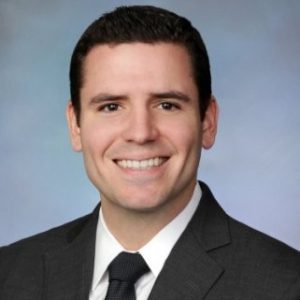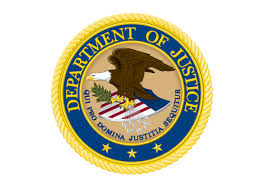
The Commodities Futures Trading Commission’s head of enforcement touted increased spoofing cases, but is it all propaganda?
James McDonald is CFTC’s Head of Enforcement and he was the latest guest on the podcast of CFTC’s Chief of Market Intelligence, Andrew Busch.
Spoofing, as McDonald noted, was first written into law and defined in Dodd/Frank, however, spoofing activity was already being prosecuted, it was just referred to as other things.
“Before this specific anti-spoofing provision, we could charge spoofing activity. We charged it as some sort of fraud or manipulation or false recording.”
Spoofing, “is placing orders with the intent to cancel them.” McDonald said.
Busch noted that the CFTC has brought a record 26 spoofing cases in 2018.
Busch also noted that often these cases are brought in conjunction with criminal charges from the US Department of Justice (USDOJ).
The CFTC can only deliver civil punishment while criminal punishment is done by the USDOJ, because spoofing is considered a federal crime.
Indeed, a check of the CFTC press releases for the year will show that much more has been done by the agency than in previous years.
Busch and McDonald spoke about an action in January, brought against multiple banks, on different continents, and with criminal charges in many cases.
“CFTC Files Eight Anti-spoofing Enforcement Actions against Three Banks (Deutsche Bank, HSBC, and UBS, and six individuals.” Their press release stated at the time.
More recently, the CFTC took another action on October 12, 2018, which also culminated in criminal charges as well.
“The Commodity Futures Trading Commission (CFTC) today issued an Order filing and settling charges against Kamaldeep Gandhi, in which Gandhi admits to engaging in manipulative and deceptive schemes, along with other individuals, which involved thousands of acts of spoofing (bidding or offering with the intent to cancel the bid or offer before execution) with respect to a variety of futures products traded on the Chicago Mercantile Exchange, Chicago Board of Trade, New York Mercantile Exchange, and the Commodity Exchange, Inc.” That press release stated. “The Order finds that Gandhi engaged in this unlawful activity while placing orders for, and trading futures contracts through, accounts owned by his former employers, two proprietary trading firms named as Firm A and Firm B in the Order.”

Ghandi, along with another defendant, then pleaded guilty to criminal charges in November, according to a USDOJ press release: “Krishna Mohan, 33, of New York, New York, pleaded guilty today to one count of conspiracy to engage in wire fraud, commodities fraud and spoofing. Sentencing is scheduled for Feb. 28, 2019 before U.S. District Judge Gray H. Miller of the Southern District of Texas.
“Kamaldeep Gandhi, 36, of Chicago, pleaded guilty on Nov. 2 to two counts of conspiracy to engage in wire fraud, commodities fraud and spoofing. Sentencing is scheduled for Feb. 22, 2019 before U.S. District Judge Ewing Werlein Jr. of the Southern District of Texas.
“As part of their pleas, Gandhi and Mohan admitted that, from March 2012 to March 2014, they conspired with Yuchun‘Bruce’ Mao and others at the first firm (Trading Firm A) to mislead the markets for E-Mini S&P 500 and E‑Mini NASDAQ 100 futures contracts traded on the Chicago Mercantile Exchange (CME) and E-Mini Dow futures contracts traded on the Chicago Board of Trade (CBOT). Gandhi and Mohan further admitted that they and their co-conspirators placed thousands of orders that they did not intend to execute, or ‘spoof orders,’ in order to obtain executions of other orders, or ‘primary orders,’ at better prices, quantities and/or times than otherwise possible, to the benefit of the co-conspirators and Trading Firm A. Gandhi and Mohan further admitted that the United States has calculated that the scheme resulted in market losses of over $60 million.”
Busch and McDonald both noted that spoofing is a form of manipulation which is a sign of the times.
Busch said that spoofing could never be done in a trading pit because that would quickly become the trader’s reputation, and no one would trade with them.
While the numbers have grown, that is also to be expected given how new the crime is.
Furthermore, McDonald said that his department was, “Growing our whistleblower program and providing whistleblowers extra protections.”
But as The Industry Spread has documented, that was not the case with Edwin Johnson, who continues to face retaliation even though the CFTC settled with the subject of Johnson’s disclosure: Igor Oystacher and 3 Red Trading.
The CFTC has also been criticized, specifically in Forbes, for not being able to develop cases on mass scale, like with Oystacher and Jon Corzine.
“Big fraud allegations often mean big settlements will follow. But the settlements the Commodity Futures Trading Commission reached with former MF Global CEO Jon Corzine in early January and Igor Oystacher and his Chicago firm, 3Red Trading LLC, in December were surprisingly puny.” Forbes said in 2017.
It’s important to note that the investigation which nabbed three banks and six traders came after this article came out and would provide some evidence this was not necessarily so, but even in that case, the numbers recovered were not enormous: the banks were ordered to repay $46.6 million in penalties combined.
One problem for the CFTC, and a topic not covered on the podcast, was the budge for the CFTC Enforcement Department, $51,299,154 in 2017, according to figures from the CFTC.
Here’s what Forbes noted about the budget: “That is the explanation former CFTC enforcement chief Aitan Goelman gave to Reuters in an interview last week. Taking Corzine, a former US Senator and New Jersey governor, and Oystacher to trial would have absorbed more than half of the enforcement division’s entire operating budget for 2017, Goelman said. That put the CFTC in a very weak position to push for larger settlements.”
Oystacher, according to one expose from The Industry Spread, hired fifteen lawyers to defend himself.
Corzine had equally unlimited resources for lawyers.
Oystacher paid a relatively small fine, $2.5 million, and 3 Red Trading not only continues to trade today but is still a major player on the CME.
Meanwhile, Johnson was terminated, had his ownership shares removed, and has been in litigation since.









